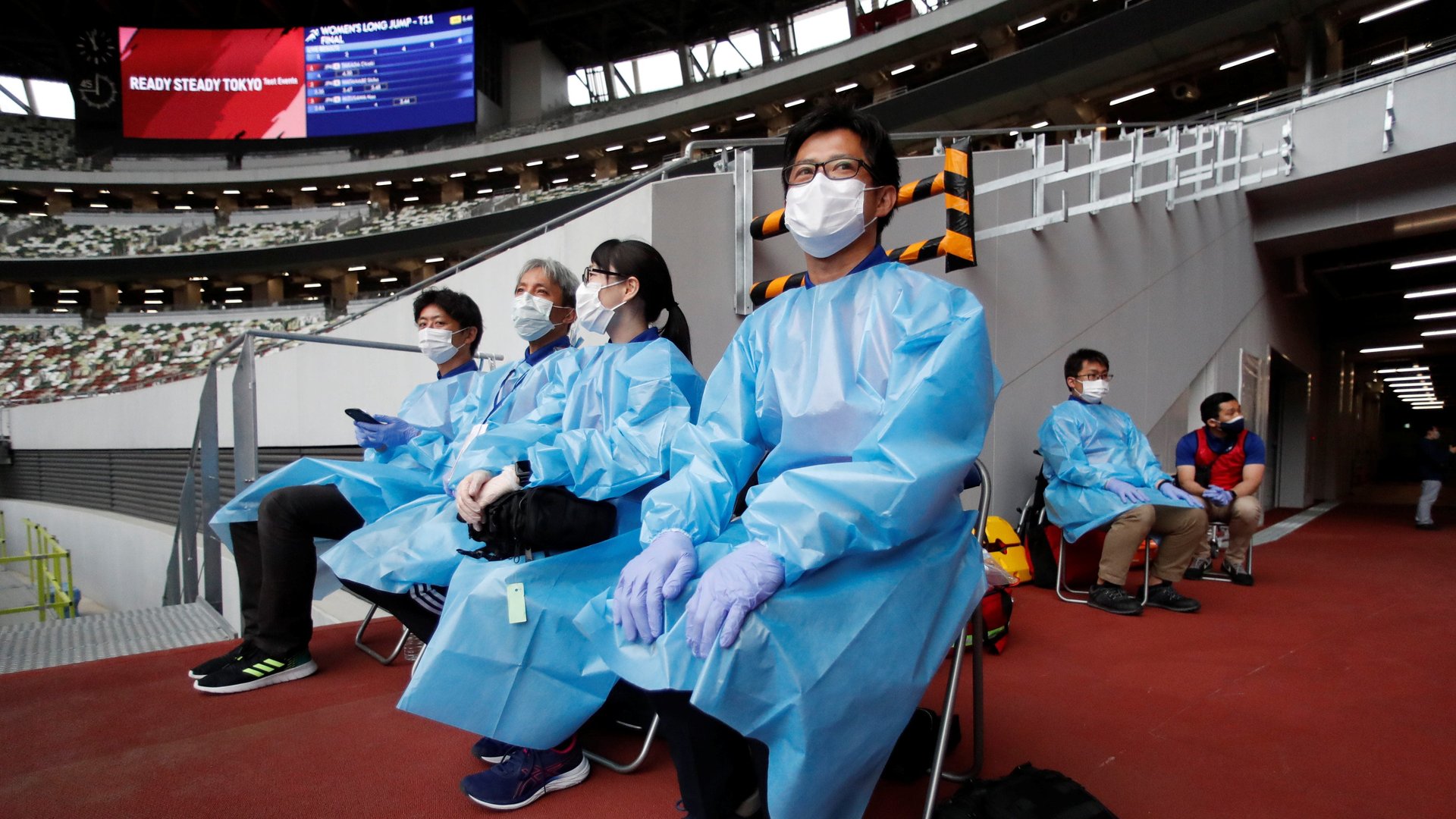The Tokyo Olympics are looking shakier
The International Olympic Committee (IOC) normally makes replays of its press conferences available to watch on YouTube. But today’s conference is notably absent. That’s probably because it was cut short when a protestor posing as a journalist snuck into the meeting and yelled, “No Olympics anywhere! Fuck the Olympics!”


The International Olympic Committee (IOC) normally makes replays of its press conferences available to watch on YouTube. But today’s conference is notably absent. That’s probably because it was cut short when a protestor posing as a journalist snuck into the meeting and yelled, “No Olympics anywhere! Fuck the Olympics!”
The protestor captured a sentiment that’s growing among public health experts, Japanese citizens, opinion writers, and more: The Tokyo Summer Olympics, scheduled to begin July 23, should be canceled.
Cases of Covid-19 are rising in Japan, forcing its government to issue a state of emergency that will last through at least the end of May. On top of that, the country has been slow to roll out vaccines compared to other developed countries. Only about 2% of Japan’s population of 126 million is fully vaccinated.
The situation in Japan is so dicey that Thomas Bach, the president of the IOC, canceled a trip there this week as a result of the state of emergency. And yet, even as its leader deemed it unsafe to travel to Japan personally, the IOC insists that the Olympics will go on as planned. During today’s press conference, IOC spokesman Mark Adams did not really address the calls to cancel, other than to say that the support of the World Health Organization (WHO) should be enough to assuage concerns.
But that will certainly not be enough. Three separate polls taken by Japanese news organizations in the last few weeks found that between 60% and 70% of the country’s citizens want the Olympics canceled. A petition demanding the games be canceled—and their funds rerouted to support families impacted by the pandemic—received more than 300,000 signatures in less than three days, the Associated Press reported. Jules Boykoff, a political scientist, rounded up these figures into a compelling New York Times opinion piece on May 11 arguing for the games’ cancelation.
What it would take to cancel the Olympics
It will likely take more than polls, petitions, and New York Times stories to cancel the Olympics—or even to postpone them for a second time. Japan has already invested $25 billion into the Olympics, 80% of which comes from Japan’s taxpayers. An estimate from economists at Kansai University revealed that the country could lose up to $41 billion (link in Japanese) if the games are canceled.
If athletes start boycotting, or major countries pull out, then that might be enough. But so far, few star athletes have broached the topic, and North Korea is the only country to formally withdraw from participation. Japanese tennis star Naomi Osaka and US tennis sensation Serena Williams were each ambivalent when asked about this summer’s Olympics, but stopped short of saying they wouldn’t take part. The US track and field team canceled its training camp in Chiba, but has not said anything about dropping out entirely.
Another group that might move the needle is the games’ broadcast partners and sponsors. Broadcast rights comprise 73% of the IOC’s revenue, according to IOC documents. Between 2013 and 2016, the IOC brought in $4.2 billion in TV rights. If, for instance, NBC—the exclusive broadcaster of the Olympics in the US—said it wasn’t comfortable moving forward, Japan and the IOC would have to listen. But given how much money NBC has spent on the games ($12 billion in combined rights fees for every Olympics between 2012 and 2032), that seems unlikely.
Still, concerns over the Tokyo Olympics are not going away, especially because public health experts see the current Covid-19 protocols as inadequate. Participants will be required to show two negative tests before arriving and then will be tested each day, but they will not be required to be vaccinated—nor will they have to quarantine upon arrival. They will be discouraged, but not barred, from moving freely about the country. Japan and the IOC have, however, banned spectators from outside the country.